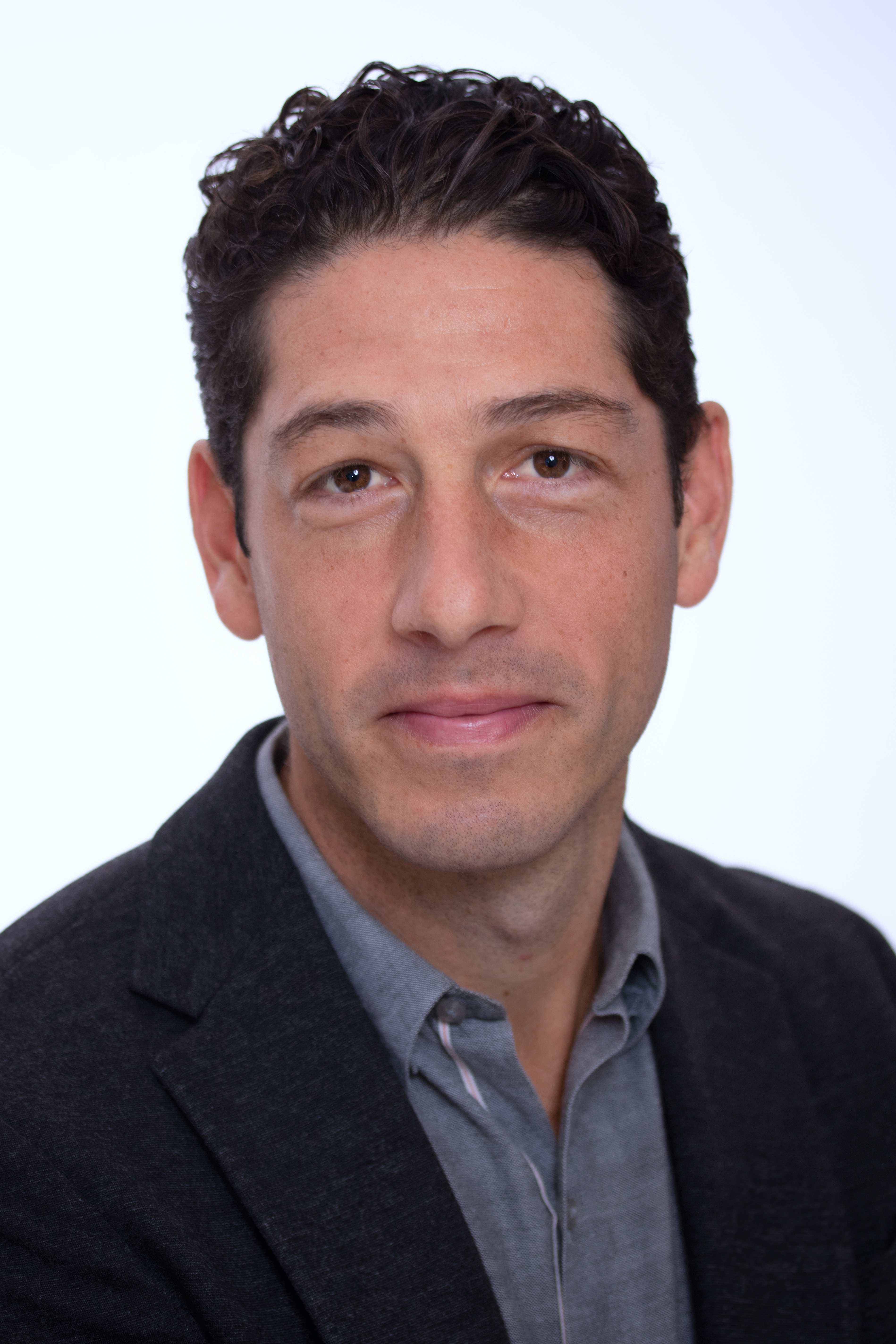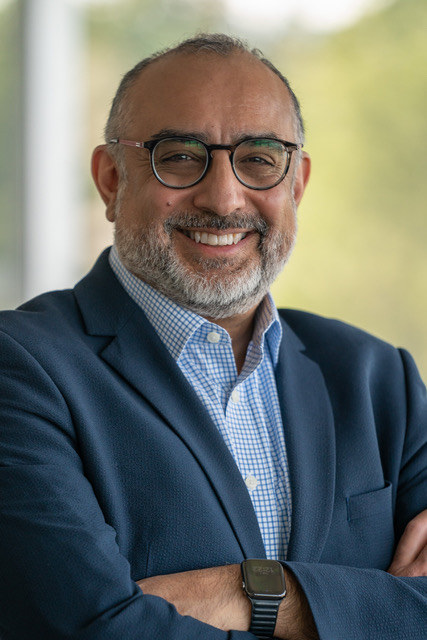Implementation Advisory Group (IAG) for the National Strategy for Drugs for Rare Diseases
On this page
About the Implementation Advisory Group (IAG)
In October 2023, the federal government established an Implementation Advisory Group as part of the National Strategy for Drugs for Rare Diseases (the Strategy).
The Implementation Advisory Group is a cross section of the rare disease experience, including patients and clinicians, private drug plans, and the pharmaceutical industry.
The Group will provide advice to Health Canada and other health system partners on the implementation of the Strategy and be a forum to exchange information and best practices on drugs for rare diseases. This is a continuation of the dialogue that has been underway since consultations began in 2021 with rare disease patients and those who play a key role in enabling access to drugs for rare diseases (DRD) and the provision of care.
To ensure that a wide range of perspectives are included in its work, the Implementation Advisory Group may invite external participation to support specific discussions. It will also host an open Town Hall twice annually to share its progress.
Members
Dr. Sandra Sirrs (current co-chair )

Sandra Sirrs trained at the University of British Columbia in internal medicine and endocrinology before doing additional training in inherited metabolic diseases.
She started the first free standing clinic for adults with these disorders in North America in 1999 which has grown to become one of the largest such clinics in the world. She has worked in the field of rare diseases for more than 2 decades with particular interest in lysosomal storage diseases. She has been involved in developing both national and international guidelines for drug treatment of a number of different rare diseases and has functioned in an advisory role for both provincial and national regulatory and HTA bodies in the area of drugs for rare diseases.
She is a clinical professor of endocrinology and metabolism at the University of British Columbia and is a member of the Division of Endocrinology at Vancouver General Hospital which was recently ranked in the top 50 of all academic endocrinology departments in the world. Sandra is also the Medical Lead for Rare Diseases at British Columbia’s Provincial Health Services Authority.
Dr. Durhane Wong-Rieger (current co-chair )

Durhane Wong-Rieger PhD, is President & CEO of the Canadian Organization for Rare Disorders, Chair of the Consumer Advocare Network, President & CEO of the Institute for Optimizing Health Outcomes and Chair of Canadian Heart Patient Alliance.
Internationally, she is Chair of Rare Disease International, President of Asia Pacific Rare Disease International, Treasurer of United Nations Nongovernmental Organization for Rare Diseases, Chair of Patient Advocates Constituency Committee of the International Rare Disease Research Consortium, Patient Advisor to the APEC Rare Disease Network, member of the Editorial Board of The Patient- Patient Centred Outcomes Research, and member of Health Technology Assessment International Patient / Citizen Involvement Interest Group.
Dr. Wong-Rieger has served on numerous health policy advisory committees and panels, including member of Genome Canada Steering Committee for the Rare Disease Precision Health Initiative and CADTH Real World Evidence Steering Committee. She is a certified Health Coach.
Durhane has a PhD in psychology from McGill University and was professor at the University of Windsor, Canada. She is a trainer and frequent lecturer and author of three books and many articles.
John Adams

John Adams is Chair, Board of Directors, of the Best Medicines Coalition, a national alliance of patient organizations seeking timely and equitable access to a comprehensive range of medically necessary drugs and related treatments for all patients in Canada. John is a father to an adult son with Phenylketonuria (PKU), a rare genetic disorder, and is the President and CEO of Canadian PKU and Allied Disorders, which he co-founded. In addition, John's wife died of ALS and FTD (amyotrophic lateral sclerosis and frontotemporal degeneration). He is a senior fellow of the Macdonald-Laurier Institute focused on health issues, co-chair of the Disability Tax Fairness Alliance, and past Board Chair of the Canadian Organization for Rare Disorders. John is a seasoned management consultant and has worked as a Globe and Mail reporter, chief of staff to an Ontario Cabinet Minister, and was elected to Toronto City Council three times.
Dr. Shawn Bugden

Dr. Shawn Bugden is Dean at the School of Pharmacy at Memorial University of Newfoundland and Labrador and an Adjunct Professor at the College of Pharmacy at the University of Manitoba. He took his initial pharmacy training at the University of Manitoba and has taken further post-graduate training at the University of Manitoba, McGill University, the University of Washington and Oxford University. He had a long career in retail and hospital pharmacy management prior to beginning his academic career in 2008. Shawn is also the current Chair of the Board of Directors for the Canadian Pharmacists Association. Shawn has expertise in hospital pharmacy, drug pricing, health policy, pharmacoepidemiology, pharmacovigilance, and pharmacoeconomic evaluation. He has published more than 50 peer-reviewed publications.
Andrew Casey

Andrew Casey became president and CEO of BIOTECanada in August 2012. In his role as President & CEO of BIOTECanada Andrew is responsible for the strategic operations of the Association which represents Canada's biotechnology sector. As the head of BIOTECanada, he is the lead spokesperson for Canada's biotechnology industry communicating on the industry's behalf with government, regulators, international bodies, media and the Canadian public.
Between 2004-2012 Andrew was Vice President, Public Affairs and International Trade with the Forest Products Association of Canada (FPAC). From 1993-2004 he was the Assistant Vice-President, Government Relations with the Canadian Life and Health Insurance Association (CLHIA). Prior to joining the CLHIA, Andrew worked on Parliament Hill as a political advisor in the office of the Minister of Finance.
Andrew Casey is a native of Montreal, Quebec. After attending Loyola High School (Montreal) and St. Lawrence CEGEP (Quebec City) he graduated from Carleton University (Ottawa) with a Bachelor of Arts (Political Science).
In his capacity as head of BIOTECanada Andrew also currently serves as Director, Board of Directors, BIOTECanada and Director, Board of Directors, Institute for Research in Immunology and Cancer, Commercialization of Research (IRICoR).
Dr. Pranesh Chakraborty

Dr. Chakraborty is a physician certified by the Royal College of Physicians and Surgeons of Canada in Medical Biochemistry and Pediatrics, with a subspecialty in Biochemical Genetics. Throughout his career, he has pursued clinical activities and translational research focused on improving outcomes for people with Inherited Metabolic Diseases and other rare diseases. He joined CHEO in 2003 as a clinician providing ongoing care for patients with Inherited Metabolic Diseases. In 2006 he led the establishment of Newborn Screening Ontario (NSO). NSO is internationally-recognized and has grown substantially with Dr. Chakraborty as its Medical and Laboratory Director. Since 2020, he has served as a Senior Medical Advisory for the Laboratories and Diagnostics Branch of the Ontario Ministry of Health. Internationally, he is a member of the ClinGen pediatric actionability working group, was on the organizing committee of the 2020 Association of Public Health Laboratories newborn screening and genetic testing symposium, and served on the 2018 expert advisory panel reviewing the American federal recommended universal screening panel decision process. Finally, he is a Principal Investigator and co-leads the CIHR-funded Canadian Inherited Metabolic Disease Research Network and INFORM-RARE project. As of November 1, he will be the Chief and Chair of Pediatrics at CHEO and UOttawa.
Dr. Shelita Dattani

Dr. Shelita Dattani is the Senior Vice President of Pharmacy Affairs and Strategic Engagement at the Neighbourhood Pharmacy Association of Canada. In this role she leads a team advocating for pharmacy's evidence based role in delivering accessible, high-quality healthcare and building capacity in public health and primary care.
Sheli is a dynamic pharmacist and a pharmacy leader with over 20 years' experience in many sectors of the profession, including community, hospital, academia, industry, group purchasing organizations and pharmacy associations. She completed her Bachelor of Science in Pharmacy at Northeastern University and her Doctor of Pharmacy at the University of North Carolina at Chapel Hill.
Sheli maintains a practice in community pharmacy and primary care team based practice. She holds teaching appointments in pharmacy as adjunct faculty at the University of Ottawa, session lecturer at the Memorial University of Newfoundland, and guest lecturer at the University of Waterloo.
Sheli is a sought after speaker in diverse areas of therapeutics, practice and policy and is passionate about her continued engagement as an advisor, consultant, and educator. Sheli is fueled by and committed to contributing to pharmacy's growing role as an integral health care partner.
Dr. Avram Denburg

Dr. Avram Denburg is currently on the Canadian Agency For Drugs And Technologies In Health (CADTH) Board of Directors as an academic member. He is staff oncologist and clinician-scientist in the Division of Haematology/ Oncology at the SickKids, the Hospital for Sick Children in Toronto. He has a Master of Science in Health Policy, Planning and Financing from the London School of Economics and a PhD in Health Policy from McMaster University. Avram's research centres on the analysis and strengthening of childhood cancer care systems, with specific focus on issues related to pharmaceutical policy and drug access for children in Canada and internationally. His lab at SickKids Research Institute is engaged in projects on health technology assessment (HTA) and cancer drug access in various health system contexts globally. Current priority areas of research include the development of novel approaches for the value-based assessment of pediatric health technologies, including precision cancer therapies; the incorporation of societal values and public preferences into HTA and pharmaceutical policy; comparative analysis of policy approaches to precision cancer therapy regulation and reimbursement; and the analysis of cancer drug availability, cost, and access dynamics in a range of low- and middle-income countries.
Innovative Medicines Canada
Innovative Medicines Canada is the national association representing the voice of Canada's innovative pharmaceutical industry.
Dr. Bashir Jiwani

Dr. Bashir Jiwani is Executive Director, Ethics Services, at the Fraser Health Authority.
Recent areas of focus include a framework for equal respect and equitable treatment – responding to the challenges of EDI, allocating financial resources to support COVID-19 response, producing decision-making structures and processes for expensive drugs for rare diseases, and creating a gender-inclusive climate.
Bashir received his BA in Philosophy from McGill University and his MA in Philosophy with a specialty in Bioethics from the University of British Columbia. He received a PhD in Public Health Sciences from the University of Alberta, Canada.
Bashir has served on the pan-Canadian Advisory Panel on a Framework for a Prescription Drug List, Drug Benefit Council for BC Ministry of Health; the Expensive Drugs for Rare Diseases Advisory Committee for BC Ministry of Health; the Core Team for the Aga Khan University Thinking Group on Ethics, Stem Cell Science, and Regenerative Medicine; and as a consultant for the Ismaili Tariqah and Religious Education Board of Canada.
Bashir is President of the Canadian Bioethics Society.
Joanne Jung

Joanne Jung is Willis Towers Watson's (WTW) Canadian pharmacy and clinical practice leader. With several decades of pharmacy experience, she leads a national team of pharmacy experts who advise employers on managing pharmacy benefits for employees. As a practicing pharmacist and experienced health and benefits practitioner, Joanne brings a unique combination of expertise and hands-on experience. Joanne has partnered with a broad spectrum of employer, trustee and union groups to optimize drug plan utilization and mitigate costs. She has also advised a wide range of organizations in both the private and public sectors across Canada to design and implement health and benefit management strategies.
Prior to joining Willis Towers Watson, Joanne worked at British Columbia's largest private insurer leading key innovations to their drug strategy. Also, as a clinical pharmacist she gained critical acclaim for her innovation in developing the clinical practice of hospital pharmacists.
Joanne completed her pharmacy degree at the University of British Columbia followed by a hospital residency at St. Paul's Hospital. As an industry professional, Joanne has published several research papers and is a frequent speaker at industry events. She is a past member of several Canadian Life and Health Insurance Association committees and has served on a number of national advisory boards.
Dr. Aneal Khan

Dr. Aneal Khan is President of MAGIC Clinic Ltd., CEO of Discovery DNA. His main research interest is to investigate novel methods for the treatment of childhood-onset genetic diseases. As a pediatrician, medical genetics and metabolic diseases specialist, his clinical research has primarily included subjects with inborn errors of metabolism. Dr Khan is currently a principal investigator in multiple studies investigating the role of novel therapies like, gene therapy, and next generation sequencing for mitochondrial disorders, bone imaging in metabolic diseases, metabolic cardiomyopathies and rare disease registries. In 2014, Dr Khan's team performed the first liver cell transplant for urea cycle diseases in Canada, in 2017 the first in the world gene therapy for Fabry disease, in 2019 the first gene therapy for a urea cycle disease in Canada, and in 2020 the first in the world gene therapy for Gaucher disease. He trained in Medical Genetics at the Hospital for Sick Children in Toronto, working there for a brief periodic in Clinical and Metabolic Genetics, then at the University Health Network, McMaster University, Alberta Health Services and now has his community practice in metabolic and clinical genetics in Calgary, Alberta.
Elizabeth Kwan
 \
\
Elizabeth Kwan is a Senior Researcher for the Canadian Labour Congress (CLC). The CLC is Canada's largest central labour body and speaks on issues of national importance for three million unionized workers across Canada.
As the CLC policy lead on health and health care, Elizabeth works on all the key priorities of strengthening and building the public health care system in Canada. She is active in Parliamentary and government engagements for labour including pharmacare, the national strategy for drugs for rare diseases and the Canadian Drug Agency.
Currently, Elizabeth is actively engaged in key CLC campaigns: Forward Together, Universal Public Pharmacare and the Care Campaign.
Elizabeth champions health justice and equity, working with the intersectionality of inequalities and social-economic factors including racism and hate, low-income, gender, ableism, immigrant status, and food (in)security.
Prior to her tenure with the CLC, she worked with a broad range of health-related organizations including the Health Services at Correctional Service of Canada (CSC), the Children's Hospital of Eastern Ontario (CHEO), Health Canada's First Nations and Inuit Health Branch (FNIHB), the Public Health Agency of Canada, women and family shelters, community health centres, and immigrant and refugee health service organisations.
Erin Little

Erin Little is the proud mother two beautiful daughters, one who lives with the rare disease cystinosis. She has spent the past twelve years being her daughter's caregiver while advocating for her medical needs and fighting for access to safe, effective, and affordable drugs. She is the co-founder and President of Liv A Little Foundation, a foundation dedicated to funding better treatments and ultimately a cure for cystinosis. She has a Bachelor of Science degree in Psychology from the University of Marian.
She knows firsthand what is like to be cast adrift in the Canadian health system as a result of an unexpected, life-threatening diagnosis of a family member, with little to no prior relevant experience or knowledge, and she has learned all the hard-won lessons that come from navigating one's way through that system by sheer force of will and a relentless focus on the needs and best interests of her daughter.
Erin believes that all humans with rare diseases should have access to treatments that have been proven safe, effective, and affordable.
Bob McLay

Bob McLay is the VP, General Manager of Sobi Canada. As GM of Sobi Canada, he oversees all operations and commercial aspects of the business strategy and performance. He had also lead the Immunology Franchise for the US. In that role he was responsible for the commercial process, performance and success for Sobi North America.
For the past several years Bob has served as Chair for RAREi. RAREi is an informal network of Canadian research-based bio-pharmaceutical organizations involved in developing therapeutics for rare diseases. This forum intents to address common public policy issues with a vision to help shape the Canadian health system and policy environment to facilitate patient access to diagnostics and medicines that improve the lives of Canadians with rare disorders.
Bob earned a Master of Business Administration degree in Finance from Auburn University Harbert College of Business in Alabama. While at Auburn, Bob was a graduate assistant football coach for the Auburn Tigers. Prior to that, he received a Bachelor of Science degree from University of Guelph in Ontario. He resides in the Burlington, Ontario.
Dr. Gail Ouellette
 Dr. Gail Ouellette, a geneticist and genetic counsellor, is the former founding president of the Regroupement québécois des maladies orphelines (RQMO). She holds a PhD in molecular biology from the Université de Montréal. She was a postdoctoral researcher at the Centre for Human Genetics in Leuven, Belgium, and did research in human genetics at Algène Biotechnologies and Signalgene. She completed a master's degree in genetic counselling at McGill University and worked as a genetic counsellor at the Centre hospitalier universitaire de Sherbrooke. In 2010, she co-founded RQMO with rare disease associations and set up the iRARE Centre (information and support centre for rare diseases). She also has a website and blog dedicated to medical genetics education: Génétique simplement. As a graduate of UQAM's Faculty of Science, she was awarded the Prix Reconnaissance UQAM 2015 for her work in the field of rare diseases.
Dr. Gail Ouellette, a geneticist and genetic counsellor, is the former founding president of the Regroupement québécois des maladies orphelines (RQMO). She holds a PhD in molecular biology from the Université de Montréal. She was a postdoctoral researcher at the Centre for Human Genetics in Leuven, Belgium, and did research in human genetics at Algène Biotechnologies and Signalgene. She completed a master's degree in genetic counselling at McGill University and worked as a genetic counsellor at the Centre hospitalier universitaire de Sherbrooke. In 2010, she co-founded RQMO with rare disease associations and set up the iRARE Centre (information and support centre for rare diseases). She also has a website and blog dedicated to medical genetics education: Génétique simplement. As a graduate of UQAM's Faculty of Science, she was awarded the Prix Reconnaissance UQAM 2015 for her work in the field of rare diseases.
Gary Walters

Gary is an actuary who has been involved in employee benefit plans and private drug insurance for the past 35 years working for private insurers, a reinsurer and most recently for a third party administrator. He has submitted personal submissions on national pharmacare and drugs for rare diseases to the Hoskins Commission, the Commons select committee on healthcare and Health Canada as well as having been a joint author on submissions by the Canadian Institute of Actuaries and the Third Party Administrators Association of Canada.
A firm believer that all Canadians deserve affordable coverage to approved drugs for rare diseases that are effective for the individual Canadian patient at a price both they and Canada can afford, in particular, without regard to the patient's family situation, employment status or location; more than a decade ago Gary launched the concept and then chaired the implementation of the Canadian Drug Insurance Pooling Corporation (CDIPC). CDIPC is a voluntary agreement amongst all private insurers to share the cost of expensive drugs under insured private benefit plans, so that no employer has health premiums become unaffordable due to an expensive drug claim by an employee or their dependents.
Joan Weir

Joan is the vice president of group benefits for CLHIA (Canadian Life and Health Insurance Association), a voluntary trade association with member companies that account for all of Canada's life and health insurance business. In her role, Joan is responsible for analysis on industry issues, policy strategy development and to build consensus on concerns important to member companies. An important part of the health portfolio is working within industry, including with national healthcare associations as well as with provincial/federal payers on benefit programs, specifically on best practices, strategy, advocacy and sustainability. Joan has been with the CLHIA for more than 9 years in this role.
Joan brings 20+ years of benefits management expertise to her position at CLHIA, having worked for insurers and administrators on both private and public sector programs, notably with First Canadian Health and Health Canada on the NIHB program and most recently with Medavie Blue Cross.
Purpose and Operation
The IAG will advise Health Canada on implementation of the National Strategy for Drugs for Rare Diseases and be a forum to exchange information and best practices on drugs for rare diseases.
Background
On March 22, 2023, the federal government launched the National Strategy for Drugs for Rare Diseases (hereinafter called the "Strategy"). The Strategy commits up to $1.5 billion over three years to help increase access to, and affordability of, effective drugs for rare diseases to improve the health of patients across Canada.
The investment includes the establishment of national governance structures, such as a Health Canada secretariat and a stakeholder Implementation Advisory Group, to support the implementation of the Strategy.
The launch of the Strategy is the result of feedback from extensive consultation that garnered diverse perspectives from over 650 individuals and organizations, including patients with lived experience, family members, and caregivers. The Implementation Advisory Group (IAG) is an evolution of this ongoing dialogue into a regular and structured engagement format for rare disease patients, caregivers, health professionals and other stakeholders involved in supporting access to drugs for rare diseases.
Scope of work
The objective of the National Strategy for Drugs for Rare Diseases is to increase access to, and affordability of, effective drugs for rare diseases to improve the health of patients across Canada.
- The IAG will provide patients and stakeholders the opportunity to inform Health Canada, public drug plans, and delivery partners at the Canadian Agency for Drugs and Technologies in Health (CADTH), Canadian Institute for Health Information (CIHI), and Canadian Institutes of Health Research (CIHR), on the implementation of the Strategy.
- The IAG will also consider broader and longer-term issues and emerging trends related to DRD and share information and best practices.
The IAG may recommend the establishment of working groups to assist with the exploration of specific topics, with support from the Health Canada Drugs for Rare Diseases Secretariat (DRD Secretariat). Working groups may include participants external to the IAG. Invitations to external working group participants will be subject to the approval of the DRD Secretariat in consultation with the Co-Chairs.
Members of these working groups will be held to the same standards of transparency as members of the IAG Potential participants will be expected to declare any conflicts of interest.
Operating structure
- Composition
The IAG will be comprised of approximately 20 individuals. Participants will be drawn from a range of perspectives and roles, including patients, caregivers, clinicians, and industry. Participants will have demonstrated the ability to lead, to motivate others, and to represent various perspectives within the DRD space.
In addition, representatives from public drug plans, CIHI, CADTH, CIHR, Institut national d'excellence en santé et services sociaux (INESSS) and the pan-Canadian Pharmaceutical Alliance (pCPA) will also be invited to participate in IAG meetings as observers given their role as decision makers and delivery partners in the Strategy.
The Co-Chairs will be drawn from the IAG membership, with one Co-Chair being a patient representative and one Co-Chair being a clinician representative. After a one-year term, Co-Chairs will be rotated.
- Responsibilities
- The Co-Chairs will shape the agenda for meetings and will work with Health Canada when preparing for meetings.
- IAG participants will share advice based on their experiences and expertise.
- The Secretariat will be housed within Health Canada and will support the IAG with:
- Managing meeting organization and logistics;
- Preparing and distributing meeting materials, including agendas, meeting summaries, and background information;
- Developing and monitoring of work plans;
- Conducting analysis and research;
- Providing additional information and liaising within Health Canada and other departments with expertise related to the IAG's work as required.
- Appointment Process
Participants will be nominated by the Deputy Minister of Health. In line with the Government of Canada's commitment to diversity, participation will reflect the population of Canada, including representation of equity deserving groups, and with consideration given to the representation of Indigenous and northern health perspectives.
- Reporting
The deliberations of the IAG will be reported to the DRD Secretariat by the Co-Chairs, and incorporated into Health Canada's regular briefing processes. Reporting information may be shared publicly, such as through the Government of Canada website.
Meetings
The first meeting will be held in October 2023, with meetings to be held approximately every month thereafter.
Meetings will take place virtually. In-person meetings may be considered, in consultation with Health Canada.
- Advice
The advice and considerations provided by IAG participants will be captured in meeting summaries, which will highlight areas of consensus and dissenting points of view where appropriate.
Duration
The IAG will operate from October 2023 until March 2026 at the latest, as determined by the Deputy Minister of Health.
Confidentiality, transparency, and conflict of interest
IAG participants will act in the public interest only and will uphold the highest ethical standards so that public confidence and trust in the integrity, objectivity and impartiality of government are conserved. Participants must disclose conflicts of interest and take all necessary steps to avoid a real, apparent or potential conflict of interest between their private, professional or business interests and their duties as a participant of the IAG.
Meeting summaries
October 26, 2023
- Co-Chairs, Dr. Avi Denburg and Dr. Gail Ouellette, opened the meeting with an Indigenous land acknowledgement, welcomed the IAG participants, and acknowledged the presence of the National Indigenous Organizations along with other observers. Each IAG participant shared a short introduction about their role and expertise. It was noted that the National Indigenous Organizations were present as observers while they evaluated their invitation to join as members.
- Health Canada Director General of Drugs for Rare Diseases, Daniel MacDonald, presented an update on the implementation of the National Strategy for Drugs for Rare Diseases and presented an overview of the Terms of Reference for the IAG.
- Members posed questions of clarification about the National Strategy. It was also clarified in response to questions that members are encouraged to engage with the rare disease community (“Ambassador” role) to ensure that all discussions are informed by the widest perspective possible.
- Members made several initial suggestions for possible areas discussion by the Group, such as:
- Consistency in access to medical nutrition, food, and supplements;
- Coordination across the pharmaceutical management system in the development and use of real world evidence;
- Usefulness of metrics to measure the impact of the National Strategy (e.g., 'time to public access’);
- Goal setting for the IAG and the National Strategy;
- The process for accessing therapies and drugs;
- The role of private payers within the National Strategy;
- Wrap-around care for rare disease patients, such as physiotherapy and nutritional supports;
- The importance of taking a lifecycle approach to rare disease treatments; and,
- How Canada can leverage lessons from other countries in how they handle rare disease treatments and access to drugs for rare diseases.
- It was acknowledged that the National Strategy pertains to drugs and functions as one element of a broader suite of policy actions for rare diseases. It was also noted that the delivery of healthcare is provincial/territorial jurisdiction.
- Co-Chairs closed the meeting by confirming that the IAG will meet at regular intervals. Future meetings will develop a forward agenda of discussions.
December 18, 2023
- Co-Chairs, Avi Denburg and Gail Ouellette, opened the meeting with a land acknowledgement, went over the meeting agenda, and received approval from members on the previous October 226, 2023 meeting summary.
- Avi Denburg then presented the draft IAG Forward Agenda.
- He emphasized that the content of the forward agenda reflected the themes that members had indicated they would like to discuss.
- These key themes were: screening and diagnostics, health data, national strategy evaluation, and equity in access.
- A possible meeting sequence was also presented for members to discuss.
- Multiple members asked about:
- Receiving a better understanding of where the implementation of the DRD strategy is, and what the strategic plan is.
- The reasoning for the sequencing of the meetings and suggested that the discussion around evaluation of the National Strategy should perhaps be first. Gail Ouellette mentioned that the order of the forward agenda was determined based on how much interest there was in each topic and it was indicated that the forward agenda being presented was only a draft and that it was intended for discussion.
- The goals for the town hall and the need for there to be substantive content during this broader meeting. Avram Denburg mentioned that this initial town hall was intended to be virtual. It was also mentioned that Health Canada will be the main focus of the town hall, and that the intent would only be to introduce the IAG and not necessarily report on work the group has done to date.
- Additionally, members highlighted the following issues and suggestions for IAG priorities:
- Whether this group is accountable to the public, or only giving input to Health Canada.
- Suggestion to have a deep dive for months into one of the issues, instead of a topic each month. Avram Denburg said it is up to the group to choose, and to balance how to provide the best input and be a conduit from communities.
- Suggestion for a monthly meeting on a topic with presentations and then a short discussion is not enough. The group needs time to think and discuss and come up with recommendations.
- Emphasis was put on the need to agree to a strategic framework, to best use the skills of the group in the time allocated. and what the deliverables for the IAG are.
- Suggestion that the group needs to hear from the PTs (the people who provide the services) and why they may have difficulties with various issues.
- Suggestion that the best role of the group may be to recommend what the evaluation and outcomes of the Strategy should be.. Avram Denburg agreed that this is not intended to be a technical body, but to reflect members and communities viewpoints and how to improve equity in access.
- Suggestion to focus on problems where the IAG can make the biggest impact.
- Suggestion to focus on an approach that prioritizes first and foremost equity and consistency of access.
- It was highlighted that the need to also focus on access to treatments is also important, such as medical foods and supplements. Some rare diseases only have this type of treatment. Gail Ouellette suggested that this is a problem of not have a global national strategy for rare diseases that include everything, not just drugs.
- Knowing how each topic of discussion connects to the National Strategy and exactly what issue it is solving. Having enough context and knowing what the group is discussing so that participants can go to their communities with questions for suggestions.
- Given that each member brings a different lens to rare disease issues, suggestion to create subgroups or working groups to focus on more specific issues at hand.
- In closing, co-Chairs thanked the participants and acknowledged the need for more clarity on frameworks and processes. Co-Chairs heard the need to turn sequencing on its head to think high-level first in terms of strategy and goals, then move into specific areas of focus, and finally circle back around to refine evaluation standards.
- Next steps:
- Health Canada’s DRD Secretariat will work to summarize and process the information received during the meeting.
- Members can then take a look at the summary of this meeting in early January and determine if the next steps make sense.
- Health Canada’s DRD Secretariat will also work to schedule January and February meetings in advance.
February 22, 2024
Introduction from co-chairs
- Co-Chairs Avi Denburg and Gail Ouellette set out the objective for the meeting to receive detailed updates on what activities Health Canada and delivery partners (CADTH, CIHI, and CIHR) are supporting under the National Strategy-related activities to inform a discussion by members at the next meeting on what activities the IAG will undertake.
- The co-Chairs also invited members to go back to their constituencies with this information to inform how they wish to contribute to the committee’s work moving forward.
Health Canada update
- Bilateral agreements:
- FPT discussion are continuing on the three elements of the bilateral agreements (set of new and emerging drugs to be commonly listed and cost shared, screening and diagnostics, support for existing drugs for rare diseases).
- Governance:
- Pharmaceuticals Executive Group (PEG) pre-existed the Strategy and continues as a core element in its implementation.
- The DRD Secretariat established to support policy development, research, bilateral agreement negotiations, stakeholder engagement, sequencing and alignment of the various Strategy activities, and to ensure alignment of the Strategy with other initiatives beyond the Strategy.
- IAG is a unique community of rare disease experience and expertise intended to be a forum to exchange information and best practices on drugs for rare diseases. This includes three roles:
- providing a normative view on Strategy objectives and outcomes;
- laying the ground work to position itself to deliver practical/high impact advice in order to best ensure Strategy success
- convening expertise across the rare disease community.
Questions/discussion
- Participant questions and discussion centered on the theme of whether Health Canada has defined what “rare” is, and noted the impact that a definition could have in determining what drugs would be covered
- Discussion noted the importance of a broader/inclusive definition that is more expansive than a list of drugs
- HC noted the flexibility which a lack of set definition provides in the first, developmental phase of the strategy.
CADTH update
- CADTH provided an overview and update of their National Strategy-related activities, notably:
- Disease-based registries and real-world evidence
- Newborn screening
- DRD pipeline repository
- Customized pharmaceutical work on request
Additional information can be found on the CADTH website.
Questions/discussion
- Participants noted that many conditions do not have developed registries and stressed the importance of infrastructure that could support the development of new registries in addition to building capacity or leveraging those in existence.
- Participants also suggested that there is potential in the use of existing platforms where patients can put in their own data.
- It was highlighted that Rqmo.org has made a directory of patient-driven registries.
CIHI update
- CIHI provided an overview and update of their National Strategy-related activities:
- Data landscape for drugs for rare diseases
- Pharmaceutical data web tool
- Linked analysis for rare diseases
Additional information can be found on the CIHI website.
Questions/discussion
- Participants raised the issue of data capture for drugs which may be covered but not listed on a formulary.
CIHR update
- CIHR provided an overview and update of their National Strategy-related activities:
- Improving diagnosis for rare disease patients
- Improving health and administrative data and monitoring for rare diseases
- Bringing rare disease gene therapies to clinical trial readiness
- Pediatric rare disease clinical trials and treatment network
Additional information can be found on the CIHR website.
Discussion and next steps
Participants generally acknowledged the work of the delivery partners and how they are contributing to reducing gaps in knowledge for DRDs, and overall:
Registries
- Discussion noted the importance of data analytics that captures information across various levels (e.g., patient, population, system).
- It was noted that the registry work is excellent, but concerns were raised around those rare diseases that may not have registries.
- Partners highlighted one of the goals of the registry work is to build capacity across data sources that will enable linkage and analyses
Data collection
- There was discussion around the challenges and opportunities associated with including data from private insurers and manufacturers as well as various indications / uses of DRD, including off-label prescribing
- Questions were also raised around patient consent to data usage
- Partners explained the protections which are in place (consent, etc.)
Equity
- Several participants highlighted the principle of equity and asked how it is considered in relation to data and registry projects.
- Partners highlighted how equity considerations are being addressed across their activities
- It was suggested that one priority for the IAG could be to look at these projects and ensure that these can be applicable to all rare disease patients, while not leaving out many rare diseases.
- Co-Chairs noted that there could be an equity-oriented subgroup if the IAG is to operationalize into subgroups through pillars or through specific partner projects
General
- Potential role of smaller working groups to allow for deeper dives and more focused examination of issues of interest.
- The importance of undertaking work (under the Strategy) as expeditiously as possible: it was noted that work should be undertaken on multiple fronts at the same time wherever possible.
Conclusion
- Co-Chairs invited participants to review the materials, go over them with their constituents and identify how IAG can most have the most impact.
- Co-chairs invited committee members to consider the following questions:
- Which areas do you see would be most effective for the IAG to start with first?
- Which areas do you see would enable your organization/membership to add the most value?
- The committee will pick up these questions at the next meeting (to be scheduled).
March 21, 2024
Introduction from co-Chairs
- Co-Chairs Avi Denburg and Gail Ouellette opened the meeting with a welcome to members and land acknowledgement
- Co-Chairs turned to Health Canada to share recent developments
Discussion:
Health Canada
- Members were reminded that bilateral agreements with provinces and territories (PTs) are intended to cover three pieces:
- new and emerging DRD;
- existing DRD;
- improvement in screening and diagnostics.
- The co-chairs of CADTH’s newborn screening panel (NBS) and co-chairs of IAG will be invited to a future meeting with provincial and territorial government representatives to present on where they think they can offer advice in this area.
- There is an opportunity for an IAG proposal for how the group can bring its unique composition to bear on broader questions on Screening and diagnostics, complementary to NBS, while taking a wider perspective.
Key comments from members on the IAG preparing a presentation on screening and diagnostics to PTs:
- Members noted NBS panel is already working on this and questioned if there is already data collected on this item.
- Co-Chairs proposed a future meeting to discuss a draft presentation and emphasized that the idea is to convey which areas in which the IAG could be helpful to PTs.
- Co-Chairs then reminded members that they were asked to identify areas where the IAG is best placed to start working and where their constituencies could potentially inform work. These were the areas identified:
- Screening and diagnostics
- Registries
- Data collection
- Equity
- Defining “rare disease”
Next Steps
- IAG members were asked to give further thought to the screening and diagnostics proposal and to think about the committee’s priorities in that area.
- Members were invited to send their input to the DRD Secretariat, to be discussed at the following meeting.
June 14, 2024
The committee met in camera
July 23, 2024
The committee met in camera
September 6, 2024
Welcome & Opening
- Co-Chairs Avi Denburg & Gail Ouellette welcomed members to the first in-person meeting of the Implementation Advisory Group (IAG).
- Michelle Boudreau (Assistant Deputy Minister, Health Canada) was also in attendance and provided members with a brief update on the National Strategy and planning for next phases.
- IAG members asked about the bilateral agreements, the efficacy of having a drug-specific strategy, and how policy and regulatory dots could be connected.
Health Canada Presentation alongside British-Columbia Representative
- Daniel MacDonald (Director General, Health Canada) provided a brief follow-up to the update members had received at a previous in camera IAG meeting on the bilateral agreements.
- A representative from British-Columbia (BC) attended virtually to answer questions.
- BC spoke about how the common list of drugs was developed and how the role of Real World Evidence (RWE) will factor into how the drugs are selected. To this end, BC noted that they would be needing pilot projects in the future, where the IAG’s expertise could be beneficial.
- Members raised questions around how patient registries and patient groups would be involved in this process and noted that they were pleased to hear that screening and diagnostics were included in the agreement.
- BC highlighted that screening and diagnostics was another area where they believe the IAG could help.
- Members also asked how BC planned to engage with stakeholders on delivery of care and collection of data required for evidence generation.
- BC explained that stakeholder engagement would be included in their discussions.
Advice Framework Discussion
- Members then moved on to discussing the development of a potential framework to support their eventual assessment of various aspects of the implementation of the National Strategy.
- Members noted the importance of gap analysis within this exercise and how this framework could help them better assess whether national consistency is being achieved. They also spoke about developing a logic model that would help identify indicators for success in relation to the National Strategy.
Next Steps
- Members noted that they would like to have a Town Hall in 2025 to update the broader rare disease community on their work.
- The DRD Secretariat will work to schedule the next meeting.
Page details
- Date modified: